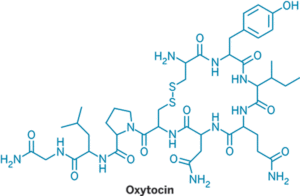STRESS - IS IT ACTUALLY GOOD FOR YOU?
We’re told stress is bad, so we should manage our time, and find a second to relax… but with families, work, bills, and life’s curveballs, it’s not quite as easy as that.
Stress can be a daily struggle with huge impacts on your life, health, and mental state. This week, though, we learned some fairly big news – turns out, stress isn’t as bad as we all thought! Actually, as it appears – it can be a pretty positive thing. It’s all how you look at it.
KELLY MCGONIGAL – “STRESS IS YOUR FRIEND”
In her eye-opening TED talk, psychologist Kelly McGonigal examines some surprising research that encourages us to change our ideas about stress.
Firstly, she shows us a study tracking US adults’ stress levels and death rates. Turns out, highly stressed out people saw a whopping 43% increased risk of dying—but only when those people identified stress as harmful. People who viewed it as a positive thing—even the super-stressed-out ones—had lower death rates. Crazy, right?
This was actually backed up by research at Harvard University, which put two groups in stressful conditions. They taught one group beforehand to view a pounding heart, sweat, and rapid breathing as helpful – increasing oxygen to the brain and body, preparing them to meet the challenge they were about to face. They found that this preparation changed the body’s stress response – instead of blood vessels constricting, and stressing the heart, they stayed relaxed despite an increased heart rate.
How crazy is that? How you approach stress changes what your body does with it – and could save your life.
THE CUDDLE HORMONE
They found that this was down to Oxytocin, the cutely nicknamed ‘cuddle hormone’ responsible for social bonding. When you’re stressed out, oxytocin is released – but much more so when you’re thinking positively about the stress. This hormone-of-many-talents keep blood vessels relaxed, whilst also regenerating and healing the heart from stress damage, so the more positive you are, the better for your health.
And, being the cuddle hormone, these benefits are enhanced by social contact and support, which triggers the release of more oxytocin, making a healthier stress response and a quicker stress recovery. As McGonical says,
“Your stress response has a built-in mechanism for stress resilience, and that mechanism is human connection”. Caring for others also triggers this oxytocin release, making you more resilient to stress. Our bodies are biologically designed to benefit from caring for each other. Isn’t that beautiful?
Recent work by UCLA psychologist Shelley Taylor agrees, identifying that the male stress response is more ‘fight or flight’, whereas females, who may have young to care for, release more oxytocin to create a stress response termed ‘tend and befriend’. Females seek support from social groups during stressful times: “The fact that oxytocin is secreted during stress in females supports the idea that responding to stress may not just consist of preparing for a mad dash across the savanna, but may also involve feeling a pull toward sociality.”1
And researchers at Concordia University found, similarly, that oxytocin can increase trust in others following a stressful social rejection, meaning that oxytocin release promotes social support seeking:
“that means that instead of the traditional ‘fight or flight’ response to social conflict where people get revved up to respond to a challenge or run away from it, oxytocin may promote the ‘tend and befriend’ response where people reach out to others for support after a stressful event. That can, in turn, strengthen social bonds and may be a healthier way to cope.”2
THE TAKEAWAY?
Stress is inevitable. But viewing it as a positive challenge, and connecting with others for support, can help you conquer it. Your body is literally designed to heal when you care for others and ask others to care for you. Managing stress is important – prioritising relaxation, managing time and delegating – but the most important thing you can do is to change your approach to stress. Embrace it. See your body revving up to smash through a challenge because you got this. And of course, do what that cuddly oxytocin is telling you to, and ask for help, share the load, or just trust your loved ones to distract you with some much-needed social time. Stress is not the enemy – trying to cope alone is. What better excuse for good friends, and a beautiful sunset?
References
2. Taylor, S. E., et al. (2000). Biobehavioral responses to stress in females: tend-and-befriend, not fight-or-flight. Psychological Review, 107: 411-429


